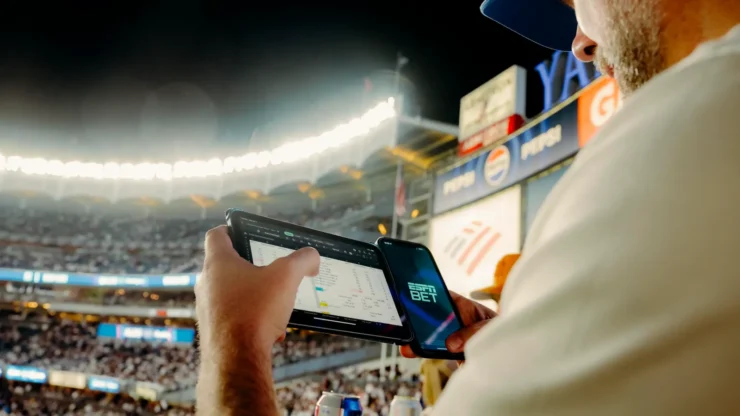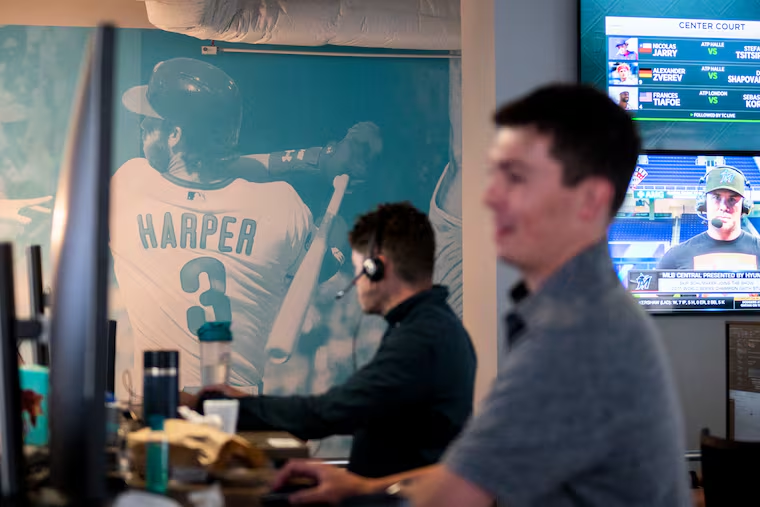The way people keep up with sports has never stayed the same. It changes with the years, shaped by whatever new screen or habit slips into daily life. There was an era when the radio was enough, then television became the gathering point, and later the internet gave fans constant highlights and analysis. Now, the phone in your hand has become the main hub. Sports fans these days are not content with sitting quietly in the stands or watching from the couch. They expect more. They want updates coming in as the game unfolds, small ways to take part, and that sense of being inside the story rather than outside of it. Betting has followed along with that energy, shifting from the old style of fixed wagers before kickoff to platforms that bend and move with the speed of the match.
Sports betting platforms are proof of how deeply this change has taken in. For today’s fans, that kind of instant reaction doesn’t feel unusual at all. They’re used to their apps keeping up in real time, whether it’s scrolling a feed, booking a ride, or checking the latest score. With platforms like Betway offering fans the chance to bet online, that same expectation for speed and reliability carries over into the sports betting experience.
From Pre-Game Slips to Second-by-Second Decisions

For older generations, betting often meant walking into a shop, handing over cash, and holding onto a paper slip. The bet was fixed, no matter how the game played out. Today’s fans, especially those who grew up online, treat the game as a chain of chances. A corner kick, a free throw, or a third down is not just part of the play but a fresh moment to lean in.
The difference reflects a broader cultural shift. Viewers no longer sit back and accept whatever is on the broadcast feed. They’re active participants. They follow multiple games at once, scroll social commentary, and swap reactions with friends in real time. Sports betting is simply another extension of this second-screen culture.
The Role of Design and Usability
One thing you notice about today’s audiences is how quickly they walk away from a clumsy app. If the screen feels heavy, if it takes too long to load, or if it is simply confusing, people will move on without a second thought. Betting platforms have had to learn this lesson quickly. They have simplified their layouts so that odds are easy to scan and choices make sense at a glance.
Take Betway as an example. The platform emphasizes speed and clarity. A user can move from checking scores to browsing odds and placing a bet without breaking their attention on the game itself. That sort of flow matters. The goal is to feel less like navigating a system and more like extending the viewing experience that’s already in motion.
Why Speed Matters
Sports move quickly, and so do the expectations of fans. When a striker lines up a penalty or a quarterback prepares to snap, odds can change instantly. For tech-savvy viewers, those updates need to appear on screen before the play is even over. Any delay feels like a disconnect.
This obsession with speed is not limited to sports betting. It reflects how digital platforms in general have trained people to expect instant feedback. A video buffers for more than a second? People swipe away. A delivery app crashes at checkout? They uninstall it. The same applies here: if a betting app lags, trust evaporates.
Reliability is just as crucial as speed. Fans want to know that when they press a button, the action registers. The best platforms ensure that even at peak moments, when thousands of users are trying to place bets at once, the system holds steady. That stability is invisible when it works, but it’s the foundation of long-term loyalty.
Data as a Storytelling Tool

Another reason betting resonates with modern fans is its connection to data. Today’s viewers don’t just want to know the score – they want to dive into metrics that explain how the game is unfolding. Betting platforms turn those numbers into something interactive.
For fans scrolling through their phones, those numbers give shape to the drama in real time. It’s not about replacing the game; it’s about layering another narrative on top of it.
Personalization and Choice
One of the biggest shifts in the way people follow sports is the expectation of control. Viewers don’t just sit back for a single broadcast anymore. They want to decide which match to follow, what highlights to catch, and even which stats matter most to them. Betting platforms fit neatly into this habit of personalization.
Users can choose which sports to focus on and decide how deeply they want to be involved. Some might just glance at the odds while keeping an eye on their local team. Others follow several games at once, jumping in and out of markets as the action changes. The point is that the experience bends to the fan, not the other way around.
The Social Layer
Sports have always been something people share, and that sense of togetherness has only grown online. Betting often slips into the mix of those conversations, whether it is a few friends trading messages in a group chat, reactions flying across social feeds, or people watching a game side by side and checking updates on their phones.
This social element doesn’t mean every fan is placing bets. Many simply enjoy the added context, watching how the odds shift alongside the game. It sparks debate and creates another entry point into the discussion. In that sense, betting is less about the transaction and more about the engagement.
What Comes Next
The next generation of sports betting won’t be defined by flashy gimmicks but by the basics done well. Fast updates, clear design, strong security, and seamless integration into the way fans already consume sports; that’s what will matter.
Betway and other platforms will keep fine-tuning the way they work, but the lesson does not really change. The future of sports betting belongs to the ones that slip naturally into the way fans already follow their teams. Watching, reacting, and taking part are no longer separate things. They flow together, and betting has settled right into the middle of that mix.
Wrapping It Up

For today’s fans, sports aren’t something you just sit back and watch anymore. They’re fast, they’re interactive, and they’re always right there on the screen in your hand. Betting has shifted alongside that, moving away from fixed slips and toward something that feels alive with the game itself.
The chance to bet online is no longer a separate hobby. It has become part of the way people already watch a game, alongside highlights, quick replays, and the steady buzz of group chats. It shows how old habits and new ones can sit together, opening up fresh ways of connecting with the matches fans care about most. For the next generation, this is not something to come later. It is simply how following sports works now. It’s the baseline. Anything less feels like the past.

